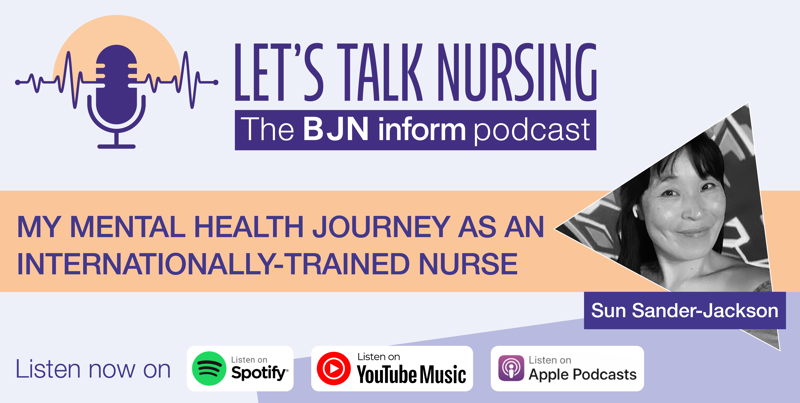Informed nurse
The BJN inform newsletter (30th May 2025)

Welcome to the May issue of the BJN inform newsletter – your go-to resource for the latest articles on all things nursing.
New to the platform? BJN inform is a mentor-in-your pocket digital resources for nurses, nurse associates and nursing students, providing you with easy-access articles on topics across clinical areas, person-centred care, career and nurse wellbeing.
In this issue of the newsletter, refresh your knowledge on lung cancer in our latest clinical article, learn more about the authentic leadership style from our Transforming Nursing series, and get practical advice on detecting and treating malnutrition in adult hospital patients.
But first, a quick reminder that the third episode from the second season of Let’s Talk Nursing is now available on your preferred platform for podcasts.

Let's Talk Nursing with Sun Sander-Jackson
In this latest episode, Sun Sander-Jackson, Inclusion Lead, Chief Nursing Officer and Chief Midwifery Officer’s Black and Minority Ethnic Strategic Advisory Group, joins the podcast to share her personal experiences of racial microaggressions and the effect this had on her mental health.
You can also listen to the episode on Spotify, Apple Podcasts, YouTube, or wherever you get your podcasts.
Lung cancer
Primary lung cancer is the third most common cancer in the UK. Around 1 in 13 males and 1 in 15 females will be diagnosed with lung cancer in their lifetime, with the highest incidence rates in people aged 85 to 89. Lung cancer remains a leading cause of cancer-related deaths around the world, it is responsible for high rates of morbidity and mortality. Margaret Perry, Locum Advanced Nurse Practitioner, provides an overview of the symptoms, aetiology, diagnosis and management.
Transforming nursing: A series on nursing leadership – Authentic leadership
Leadership in nursing has a substantial impact on patient care and the wellbeing of healthcare professionals. In the second article of this series, Brian Webster and Geoffrey Walker OBE, review the authentic leadership style and discuss its potential benefits and disadvantages in practice.
Note: This is free to access, only for June!
Malnutrition in adult hospital patients
A substantial number of people admitted to care settings are at risk of malnutrition. Many inpatients may not feel like eating or drinking as a result of acute illness or a long-term health condition and, in a busy clinical environment, it can be challenging for healthcare professionals to provide sufficient nutrition and hydration to meet patients’ requirements.
Liz Anderson, Lead Nurse for Nutrition, provides some practical advice on detecting and treating malnutrition.
If you have a subscription to BJN inform, you can access all the articles via your institutional login.
If you're facing any issues, have questions or feedback, or would like to speak with us about a no-commitment demo or trial, please get in touch with us at institutions@markallengroup.com.

